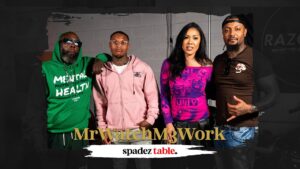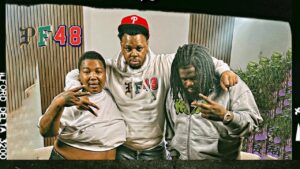John Bunn, who spent 27 years fighting for his freedom after being wrongfully convicted of murder at just 14 years old, joined BagFuel to recount his harrowing journey through the justice system. From the brutal realities of prison life to the influence of hip-hop culture and his fight for exoneration, Bunn sheds light on systemic failures and the power of perseverance.
A Broken System: Wrongful Conviction & Legal Battles
Bunn served 17 years behind bars for a crime he didn’t commit, followed by another decade battling to clear his name. His case was handled by detective Louis Scarcella—now infamous for corruption and multiple wrongful convictions—and presided over by Judge Gloria Goldstein, who had a history of racially biased rulings. With inadequate legal representation, Bunn described his trial as a “fixed fight.”
It wasn’t until investigative journalist Frances Robles exposed Scarcella’s misconduct that his case gained momentum. A 440 motion allowed for new evidence to be introduced, ultimately leading to his exoneration.
Surviving Prison: Gang Politics & Institutionalization
While incarcerated, Bunn was confronted with the harsh realities of prison life—racial tensions, gang violence, and inhumane treatment from guards. His release came under unusual circumstances: after stopping an attempted rape of a female prison staff member, he was granted special parole.
Even after regaining his freedom, adjusting to life outside was a challenge. Institutionalized by years behind bars, he initially turned to crime before realizing his true mission—advocating for those trapped in the same system that failed him.
Hip-Hop’s Influence: A Reflection or a Trap?
Bunn’s years in prison coincided with hip-hop’s golden era, as legends like Biggie, Jay-Z, and Lil’ Kim rose to fame just blocks away from where he was locked up. The music, once a source of strength, later became a point of criticism.
He questioned the modern rap industry’s role in shaping culture, arguing that while early hip-hop balanced storytelling with empowerment, today’s music often glorifies self-destruction. “If all you push is lean, Xanax, and negativity, that’s what the next generation absorbs,” he said, contrasting artists like Queen Latifah with current trends.
A Mission for Change: Advocacy & Hip-Hop Justice
Now an exoneree, Bunn is committed to educating others, from mentoring young people to exposing the entertainment industry’s financial traps. He warns aspiring artists about the music business, noting that most successful rappers profit through brand deals rather than music alone.
Bunn also announced his involvement in an upcoming Hip-Hop Justice Convention, inspired by Tupac’s activism, aimed at educating and uplifting communities. His story serves as a powerful reminder of resilience, accountability, and the ongoing fight for justice.






